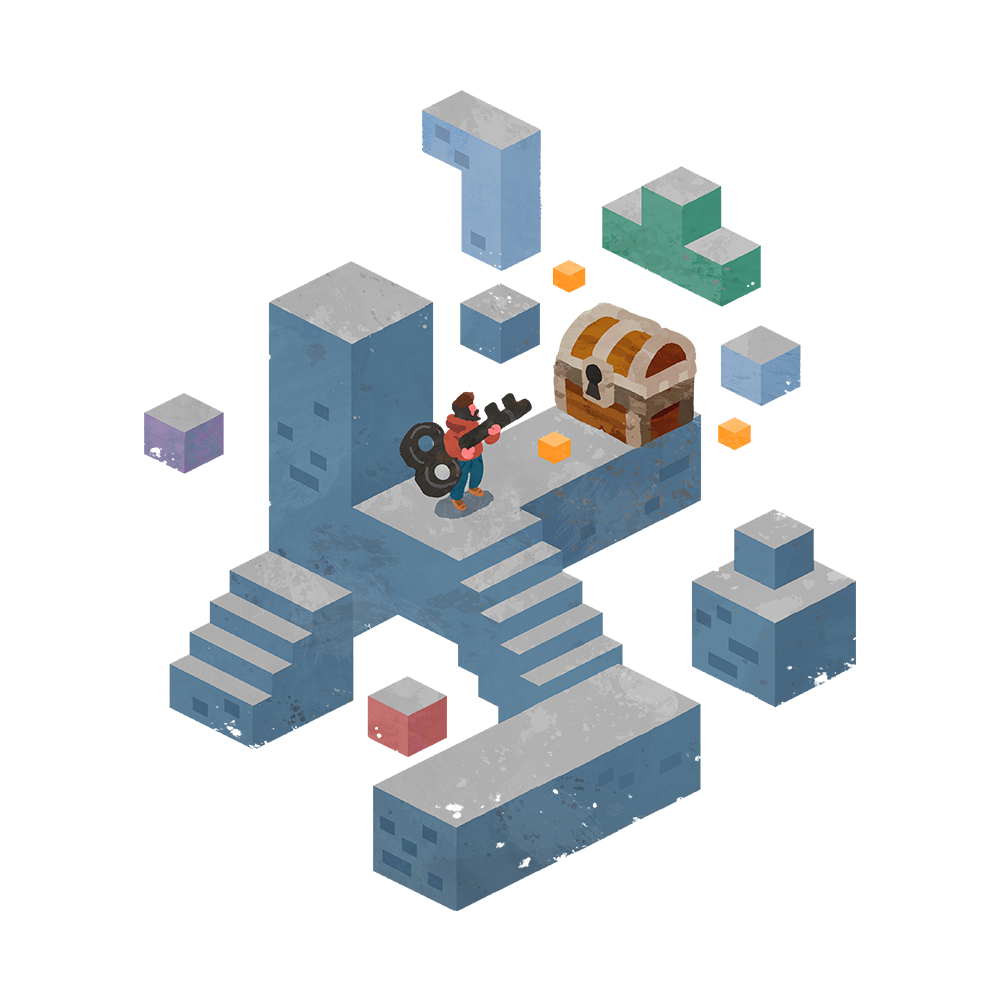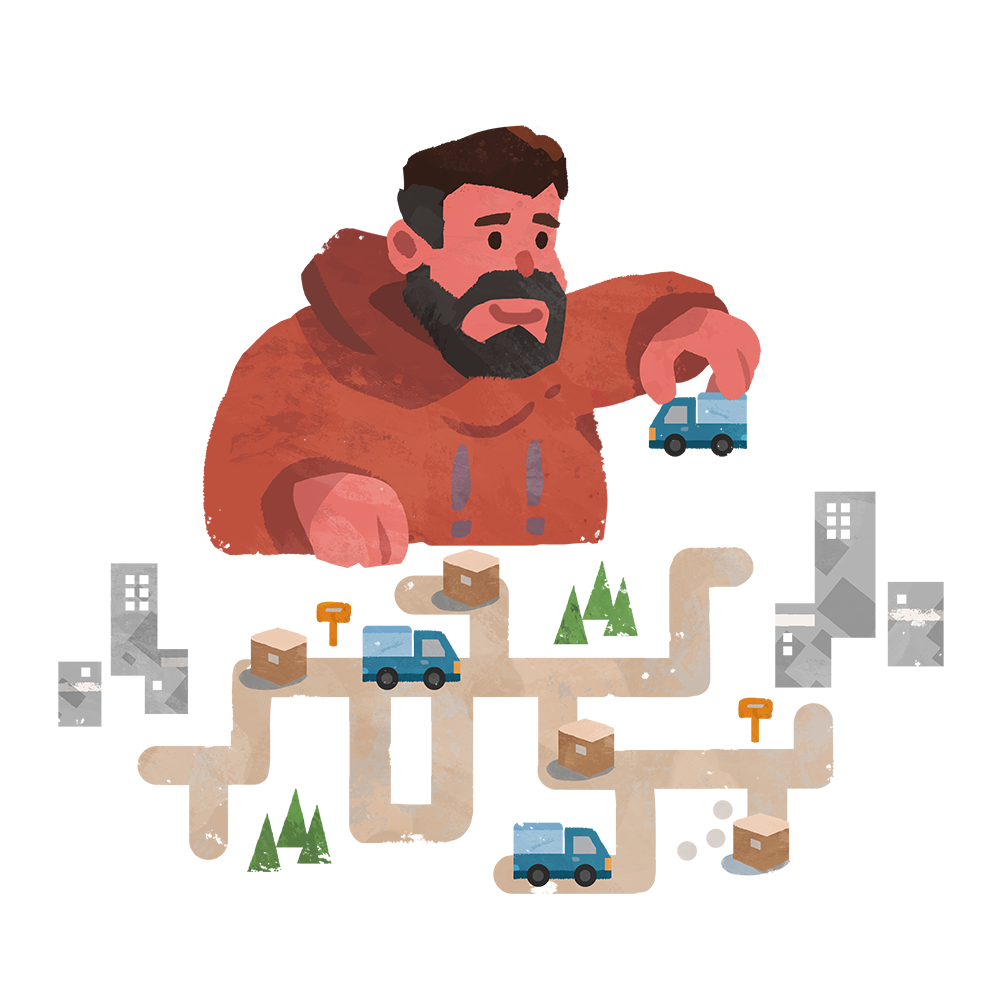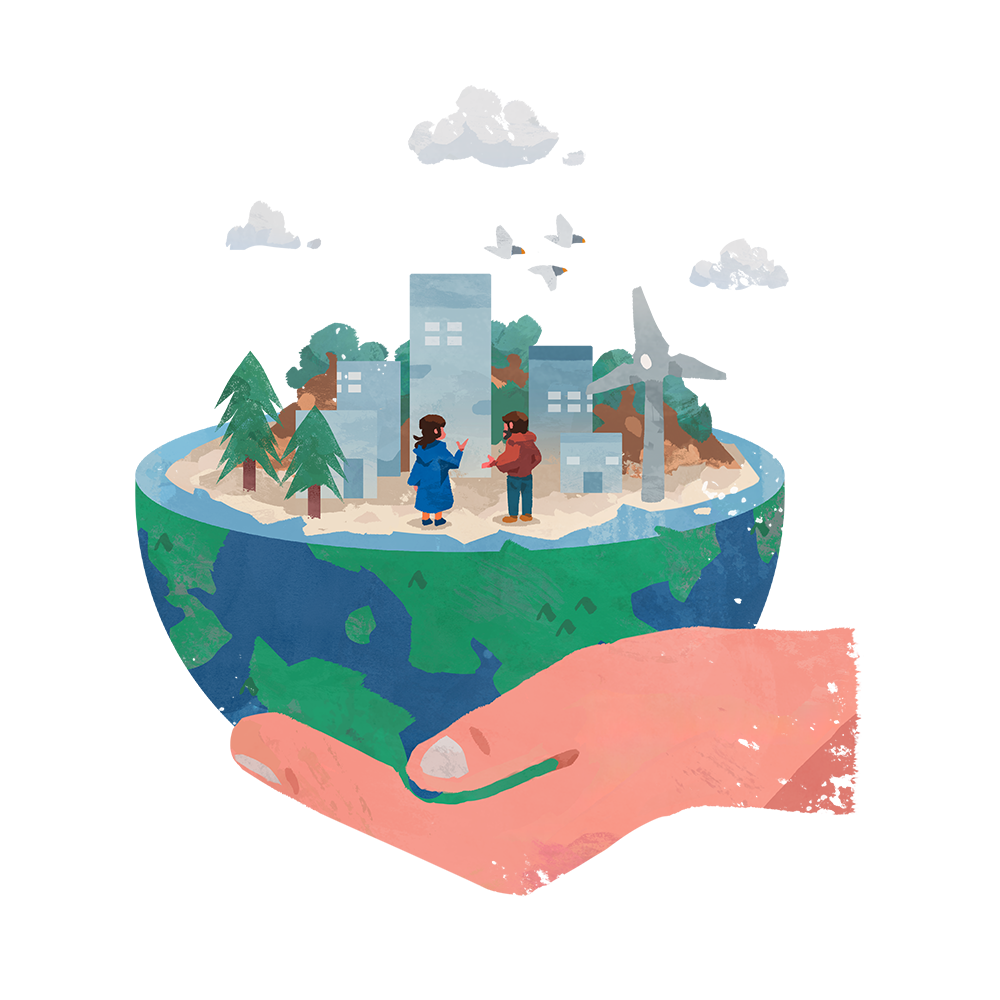Nate Mueller, UX
A designer who reshaped location-based shopping for Amazon's retail operations.
Interview notes: This interview was recorded in 2022 when Nate was at Amazon. Currently, he is Director of product design at Turing.
Hello, could you please introduce yourself 🙌
Hi, I am Nate. I have been at Amazon about nine and a half years and worked on a variety of different teams. I’m currently living in Minneapolis, Minnesota. My first four and a half years at Amazon my family and I were in Seattle. And then five years now in Minneapolis which is where I'm originally from. My family is what brought me back to this cold tundra portion of America. I'm married and have two daughters who are eight and eleven. I have two cats and one of them is my best friend. The other cat, we are still working things out. I also have a five month old puppy. The jury is still out on him. He's pretty awesome.
How would you define a Principal Designer?
As a principal designer at Amazon, I am still on a journey of self-discovery. The transition from senior UX designer to principal designer can be challenging because there is a title change, but the work remains the same. At Amazon, you have to prove you are capable of the job before you receive the title change. For two years, I was presenting to Jeff Wilke and the senior team on a monthly basis. Jeff would sit down with me in his office and we discussed design and the challenges we were trying to solve. The team was supportive and encouraged me to approach him with any issues I was trying to resolve. The hierarchy within the organization was fluid, and it was situational depending on the team and the needs of the company. This job title transition for me has been more about continued growth, working with a wider range of people, and contributing to the company's strategic thinking. I've tried to explain my journey as a continuation of growth and development, both for myself and for those I work with. My focus is not limited to the team or project I'm presently involved with, but instead, it involves broadening my connections and honing my skills.
I have been inspired by a talk on "force multiplying" that I heard from other principals. The idea is that our actions as individuals can have a multiplied effect and help a larger group of people. By assessing my daily tasks and ranking them based on their potential impact, I have redirected my attention from completing minor projects in the short term to contemplating the lasting influence my work could have on the organization in the long term. This approach enables me to optimize my time and make the most significant contributions possible to the organization.
Based on your observation, what are the trade offs or if there's any risks designers should know about before continuing down to the IC role?
I have discovered ways to strike a balance between my career and other aspects of my life, as I believe in giving equal attention to all aspects that are important to me. In my career, I have often reflected on the concept of trade-offs and realized that there are more opportunities to transition into management positions and change directions than I initially thought. These opportunities often arise unexpectedly, such as when a manager approaches me and asks if I'd like to transition into a managerial position. And I've had to at least in the past couple of years, the opportunity has come up a few times and I've had to do some real soul searching and think about the path and why I would want to do one over the other. The drawback of the individual contributor role is that there is a limit to how far one can advance in their career in terms of titles. However, this perceived risk has become less significant to me over time. If you enjoy what you do and derive satisfaction from your work, then the limitations in terms of career advancement may not be as important. As I have gotten older, gotten married, had children, and developed a life outside of work, my focus on work and career has tempered, and I've come to realize that I don't need those things to be happy. My goal is to enjoy my work and design products that will benefit people. This is why I've decided to remain in the individual contributor role. I find great satisfaction in problem solving, collaborating with others, and working on the design aspect of a product. On the other hand, management positions often require more focus on developing people's careers, which I do enjoy to some extent, but it's not my primary interest. Despite that, I am open to future opportunities that may come my way.
For designers are who staying on the IC path, what are the most important skills they should learn outside of hard craft skills?
I think as a IC principal, it is a blend of management and mentorship, where I drive the vision for the company. However, I have found that my focus has shifted from being a hands-on visual problem solver. I rarely use Figma or Sketch now that I am a principal, as my natural instinct is to step back and think about the bigger picture. My problem-solving style starts with the literal and then I work to abstract it. This approach is where I have found myself thriving. When I mentor others or have conversations about design, I often mention the importance of building bridges.
“One of the biggest mistakes I see designers, especially early in their careers, make is thinking that they need to do everything on their own to prove their value or skill. However, I’ve learned that the key to success is to surround yourself with people who are smarter and more skilled than you in various areas.”
At Amazon, and throughout my career, I found success not by working in isolation and presenting my solutions to others, but by involving others in the process. Instead of trying to solve problems and show off my intelligence, I brought others along with me. This is the fastest way to success as it builds bridges, relationships, and involvement from all parties. Getting all parties involved early, even when it is challenging, ensures that all ideas and perspectives are considered, and it allows for a smoother path forward. Being open, transparent, and collaborative will result in continued buy-in from stakeholders and a much more enjoyable journey filled with exciting work and collaboration.
I hold the belief that this statement holds true even when working remotely. I don't have the experience of physically going into the office every day. When I do meet with my team in person, there is a certain energy present. As humans, we yearn for human interaction and thrive on that energy. Recently, I visited the office for the first time in over two years and found only a few people there. Nevertheless, I could sense the energy in the building and felt excited and energized. “Yes, we are going to get some work done today”. And I was energized and excited. So, I believe that while remote work is just as important, it requires more effort to bring people together and create a similar energy.
Do you have a process for determining if an industry is worth exploring further in your career?
My one criteria is that the problem I tackle must be extremely challenging. I have a tendency to intentionally seek out these difficult design problems. I've jokingly told people that I'm a glutton for punishment with design problems because I find myself in these like sort of uncharted territories where I don't have a lot of guidance. Take the e-commerce project I worked on for example, I've been part of teams that were reimagining e-commerce as it was evolving. I recall a meeting with our CEO, Jeff Wilke, where we had to present our work to him. We were tasked with solving a big problem, and I was reminded of how the customer experience had changed over time. We designed a magical experience where customers didn't have to think about where their orders were coming from. The distance you would travel to a store was once a factor in shopping, but with e-commerce, it seemed like location didn't matter as the purchases would magically arrive within three days.
Another caveat that's important to me is that the subject matter must be engaging enough to demonstrate tangible benefits for the end customer, making their life easier or better. There's some incremental improvement to it. That excites me. And that part, it wasn't super intentional. I think it was maybe like self-conscious or unintentional that I look for those things, because in hindsight, I was like, why do I always find myself in these situations where it's like, I have no point of reference? I think an additional consideration for me is that the solution should have a tangible benefit for the end customer, making their lives easier or better in some way. There needs to be a noticeable improvement that ignites my excitement. It wasn't a deliberate choice, but upon reflection, I realize that I unconsciously seek out these challenges where I have no prior experience.
Can you describe your typical day?
My role has shifted from taking on big design projects to supporting and coaching other designers on the team, helping them with presentations and communication. It's really interesting. I found myself being more of a support role to the other designers on our team. Previously, I would have taken on large projects easily due to my experience in the company. However, I now step back and allow others to take on those tasks while offering support and coaching, helping them with presentations, design thinking, and effective communication. I also focus on future planning and research since we don't have a researcher on our team. This involves anticipating the company's future needs and planning accordingly. As a result, I feel that my role has become more focused on helping my colleagues to think big to explore different opportunities. What specific questions do we need to answer in order to have confidence in what we're building? Additionally, I work with various teams within the organization to develop a unified research plan that can be presented beforehand.
Principal Designers often spend the majority of their time on high leverage tasks such as writing documents, working with spreadsheets, and attending meetings that allow them to share their knowledge and influence the direction of projects. Does it ring true?
Yes, absolutely. I find myself attending more organizational leadership meetings where we discuss the direction and necessary changes. I give team-wide presentations and lunch-and- learns to keep us focused in the right direction. This shift from hands-on design work to more meetings, doc writing, and presenting has been a transformation. I often share my recent learnings and insights during lunch-and-learn sessions, where we discuss areas that require attention and ensure we are moving in the right direction. By doing so, I help to shift and move our focus to ensure that we are on the right track. As a result of this change, there has been a significant increase in the amount of time devoted to activities such as doc writing, attending meetings, and general presenting.
What excites you about being a designer in the next few years?
Okay. So like partly on a personal level too. I believe many companies are increasingly prioritizing sustainability, especially in technology. Initially, there was a perception that digital design was inherently sustainable, but now we recognize the environmental impact of server farms and digital payments. As a designer, I'm excited to see how we can progress and fulfill our core desire to make things better. Our industry is constantly striving to improve, whether it's through typography, style guides, app creation, or any other area. As a result, I'm super interested to see how UX will contribute to the industry's progress over the next three years.




